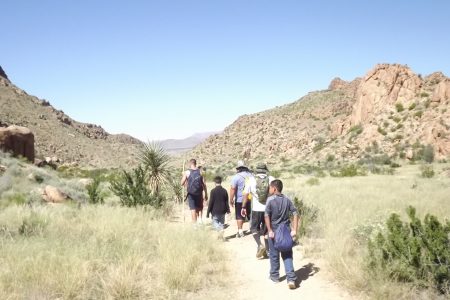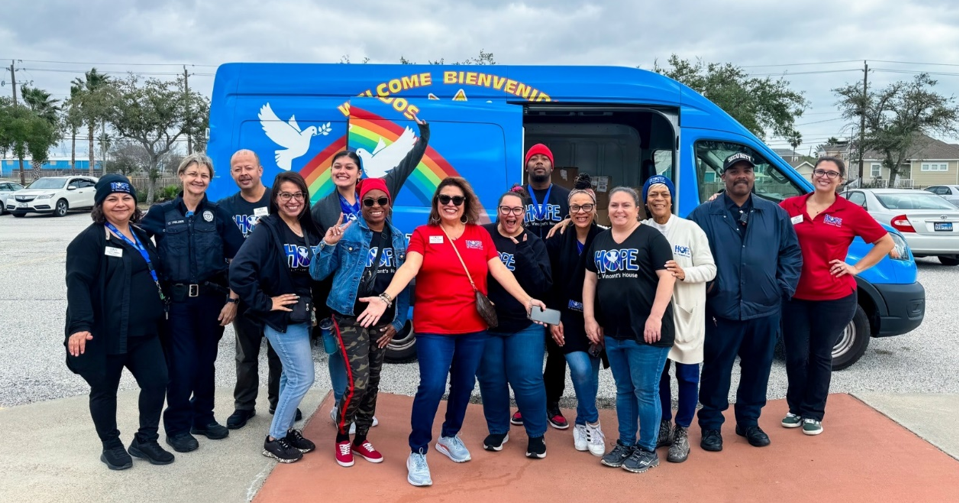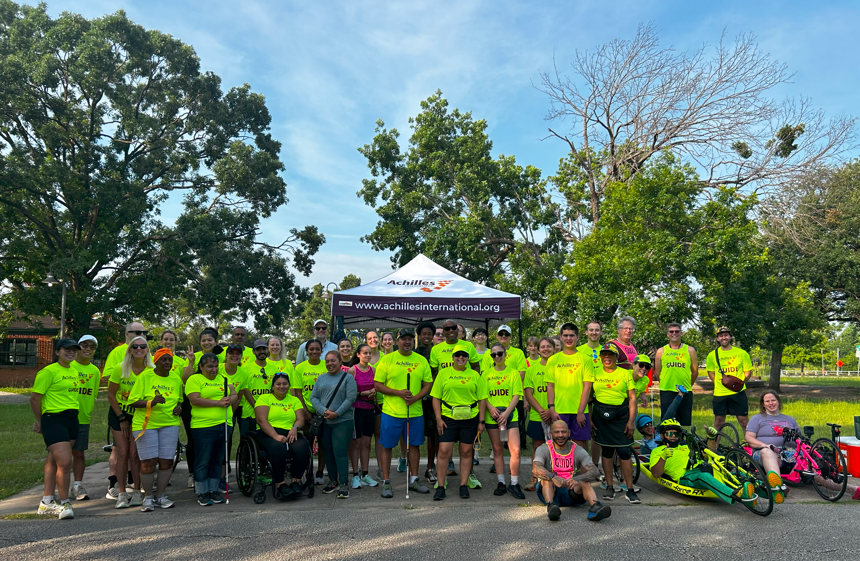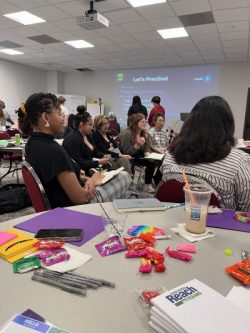
Moody Grant Recipient: Pathways Youth & Family Services
Can you tell us more about the mental health services you provide and why they’re essential?
Need: Texas ranks 41st in the nation for children and youth having a higher prevalence of mental illness and lower access to health care. Approximately 80% of foster care children suffer from significant mental health problems–a rate four to five times higher than the general population. The American Academy of Pediatrics has stated that mental and behavioral health is the largest unmet need for children in foster care. While mental health services are considered a critical component to solving the ongoing capacity crisis within the Texas foster care system, access to these services for children is inadequate. Because of this deficiency, children with mental health needs who could otherwise live in a family setting can become caught in a cycle of moving to multiple placements and eventually end up without an appropriate placement at all. The longer children in foster care have unmet mental health needs, the more difficult it is to keep them in family-like settings, exacerbating the placement issues and compounding the traumas related to constant changes, transitions, and broken family relationships.
Mosaic Behavioral Health Services Program is critical to the children served in the conservatorship of the Texas DFPS and to the ongoing Texas foster care capacity crisis. The program provides mental and behavioral health services to children ages 3-17 in the Dallas foster care system. Mosaic’s overall programmatic goal is to enhance each child and family’s ability to overcome adversity, stress, and the challenges of daily life. Therapeutic and other behavioral health services are vital to helping children in the Dallas foster care system process and heal from abuse and neglect. These services are also vital to helping caregivers become sensitive to each child’s history and need to be nurtured during the healing process. Knowing the trauma associated when a child is uprooted from their home and the traumas associated with the child’s home of origin, Mosaic’s services are critical to the successful implementation of a treatment plan that supports each child’s healing and overall well-being.
Children entering foster care develop maladaptive coping strategies that can have long-lasting effects, especially if they have a history of trauma or exposure to abuse. Because children often struggle to share their history, Mosaic uses therapeutic tools that allow children to express their needs and process difficult emotions in the safety of the therapeutic environment. Therapists and qualified mental health professionals (QMHPs) work to understand the child’s trauma history and identify and build upon their strengths, empowering them to overcome adversity. Specific to program services are the effective administration of the Texas Child and Adolescent Needs and Strengths assessment (CANS 2.0), behavioral health program services (therapeutic mental health services, skills training, and case management), and psychiatric services. An integral part of this process is to serve and support the child’s family network and treatment team through case coordination, referral to community services, client satisfaction surveys, and follow-up to ensure education and intervention assimilation.
The Mosaic team is also experienced in acute stabilization and family preservation for families in need of immediate behavioral health crisis intervention, and the practitioners are trained in crisis intervention and prevention modalities. Mosaic’s overall program services increase the child’s ability to self-regulate and demonstrate healthy thinking, emotional responses, and behaviors. All of the program’s behavioral health services and programs are delivered by well-qualified clinical professionals who adhere to best practice standards to implement a specialized treatment plan—facilitating healing, recovery, and permanency for the children and families in their care.

How many people does your organization help every month/year?
In fiscal year 2023 Pathways served 4140 people. Pathways currently works with foundations to match the needs of the foundation with the needs of the children and families served by each of the organization’s programs. This may entail holiday or back-to-school support and/or fundraising support for needs specific to the children and families of each program. While Pathways’ volunteer program is in an early stage of growth, it is anticipated that a philanthropic team-building approach will be used to recruit individuals outside the organization as points of contact, and recruit for volunteer board positions, as fundraisers to serve as ambassadors, promoting Pathways programs and services. All volunteers working directly with the children in any capacity will be thoroughly vetted and undergo a background check.
How do the foster care programs serve to benefit the community?
Need: Children entering foster care develop maladaptive coping strategies that can have long lasting effects, especially if they have a history of trauma or exposure to abuse. Every child deserves support, connection, the chance to thrive, to be loved. Tragically, it is well known that children and youth in the child welfare system are at the highest risk of maltreatment. Uncertainty, separation, and loss are all too common for children in foster care. Almost half of the children in foster care are adolescents ages 11-20 and report at least one high-risk behavior in the areas of substance use, risky sexual behavior, depression leading to suicidality, and delinquency. Risky behaviors are more frequent and more serious in adolescents in foster care than the normative risky behaviors of adolescents outside of foster care. Historically difficult to place, these children are even more at a disadvantage because of the capacity deficit within the Texas child welfare system.
Foster Care ensures a safe, nurturing, and stable environment for children 0-17 who have been placed in the conservatorship of the Texas Department of Family and Protective Services (DFPS).Uncertainty, separation, and loss are all too common for children in foster care, and the associated trauma impacts all areas of well-being. Pathways’ program recruits, trains, and supports families who desire to open their homes to children who, because of these traumas, desperately need a supportive, stable, and nurturing caregiver in their lives. Pathways foster care program works with foster and adoptive families to provide an initial and ongoing assessments to understand each child’s strengths, needs and functioning. The staff will collaborate with Mosaic’s treatment team members to develop an individualized, trauma-informed plan based on the assessment findings, as well as monitor and assess its effectiveness on an ongoing basis. Program staff will assess the child’s home environment and the caregiver’s capabilities, and provide ongoing training in trauma-informed approaches to caregiving to ensure that the placement is aligned with the child’s needs. The child’s placement environment will be monitored and services and training provided to facilitate each child’s progress and support placement stability. Understanding that parents create the foundation by which children can thrive, through a safe, nurturing, stable environment, it is this premise that motivates the Pathways’ staff to work toward and find permanent homes for each child. Pathways’ overall goal for both Foster Care and Adoptive Services Programs is that the children, youth, and families we serve experience safety, well-being, stability, permanency, and normalcy.
How has the Moody Foundation gift helped your organization?
The Moody Foundation’s award provided program support for Pathways’ 3H Youth Ranch residential treatment center. 3H Youth Ranch provides residential and therapeutic services for boys ages 11-17, with specialized or intense levels of care. The boys’ social, emotional, and behavioral functioning is improved through 3H’s comprehensive programming, which is modeled on scouting and incorporates outdoor activities such as camping and hiking to build resilience, independence, and self-sufficiency in the boys. The Moody Foundation’s support helped the program further its overall goal to improve social, emotional, and behavioral functioning through coordinated, integrated trauma-informed services, supports, and outdoor activities. Support from Moody Foundation also assisted the 3H Youth Ranch program in establishing a quality management plan to strategically address areas in need of improvement allowing, 3H to foundationally strengthen its infrastructure to better address these concerns—collectively supporting the boys in paving the way for an improved quality of life and permanency.




